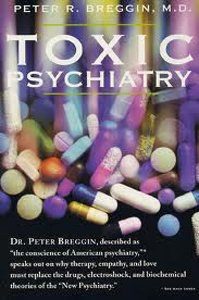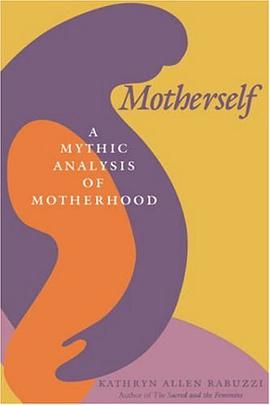

具体描述
From Library Journal Breggin, director of the Center for the Study of Psychiatry and author of Psychi atric Drugs: Hazards to the Brain (Springer Pub., 1983), describes his latest book as "the culmination of a lifetime of scientific, educational, and reform work." Breggin is anything but dispassionate: the "new psychiatry," he claims, is a return to the bad old days when a person enduring a "psychospiritual crisis" (a term Breggin favors over "mental illness") might be sent to a state hospital, where he or she would receive treatment that was degrading and harmful. Nowadays, he says, psychiatrists are in thrall to the pharmaceutical industry; they have lost or never learned the art of the loving, caring, humanistic "talking cure," and are doing more harm than good. Written in an anecdotal style, with case examples, a hefty notes section, and supportive evidence from various sources for his point of view, the book is best suited for the sophisticated general reader. Psychotherapy Book Club selection.- Marlene Charnizon, formerly with "Library Journal"Copyright 1991 Reed Business Information, Inc. From Kirkus Reviews A psychiatric reformer takes aim and blasts away with both barrels. Breggin (author of the novels The Crazy from the Sane, 1971, and After the Good War, 1972) launches a full-scale attack on the popular view that neuroses and psychoses are diseases with biochemical and genetic causes best treated by drugs--even by electroshock and incarceration. He advocates not pills but psychotherapy, which ideally provides a ``caring, understanding relationship--made safe by professional ethics and restraint.'' Treating mental disorders as chemical imbalances to be corrected primarily by chemical intervention is, he claims, an outrageous hazard to health, damaging the brains of a high percentage of those subjected to it. Breggin notes that the medical training of today's biopsychiatrists ill-equips them for any other approach: They are taught to make diagnoses and prescribe medical treatments; their communication skills are undeveloped, and they know little about the art of listening to patients' problems. Their penchant for prescribing drugs, according to Breggin, is encouraged by a too-cozy relationship between the medical profession and the pharmaceutical industry, which generously funds research into the biochemical and genetic basis of mental disorders, and whose claims for its products are insufficiently scrutinized by either the FDA or the medical profession. Breggin also has harsh words for health insurers that reimburse for drugs and psychiatric hospitalization but not for psychotherapy and social rehabilitation; coming under fire as well are schoolteachers who seek chemical solutions to classroom discipline problems, and parents who are unwilling to accept any blame for the psychological problems of their children. Although Breggin's preference for nonmedical intervention is clear, he remains skeptical about much of what's available today, warning that ``the buyer of psychotherapy must be extremely cautious.'' A one-sided but forceful caveat emptor for anyone seeking mental-health services. -- Copyright ©1991, Kirkus Associates, LP. All rights reserved. See all Editorial Reviews
作者简介
目录信息
读后感
评分
评分
评分
评分
用户评价
这本书的封面设计极其引人注目,那种暗色调的背景下,跳跃出的几个鲜红的标题字体,立刻就能抓住眼球。我拿到这本书的时候,第一感觉就是“这绝对不是一本轻松的读物”。内页的排版也很有意思,作者似乎很注重留白,使得大段的文字不至于让人产生压迫感。阅读体验上,我必须称赞一下作者的叙事节奏,他总能在关键时刻抛出一些令人深思的观点,让我不得不停下来反复琢磨。比如,关于现代社会中“诊断化”趋势的探讨,简直是鞭辟入里,让我开始反思自己周围的许多常态现象。他没有用那种高高在上的学究腔调,而是用非常贴近生活的例子来阐述复杂的理论,这一点非常难得。全书贯穿了一种对既有体系的审慎批判,但这种批判并非是单纯的否定,而是在指出问题的同时,也在暗示着一种可能性——去中心化的、更具人本关怀的理解方式。我尤其喜欢他引用的一些历史文献和哲学思想,它们像是给这本书的骨架添上了血肉,让整个论述显得厚重而扎实。读完后,感觉我的思维像是经历了一次彻底的“除尘”,视野开阔了许多,对很多过去习以为常的概念都产生了新的认识。这本书无疑是一剂强效的清醒剂,适合所有对人类心智、社会结构以及权力关系抱有好奇心的人。
评分这本书的阅读体验是相当独特且具有颠覆性的。它没有采取那种常见的回顾性批判方式,而是从一个非常新颖的、近乎人类学田野调查的角度切入,去解构那些我们习以为常的心理学框架。作者的观察力令人叹为观止,他似乎拥有某种“透视眼”,能够看到制度和文化是如何在不知不觉中塑造我们的内在体验,并将这种塑造过程“自然化”。我尤其欣赏他对“专业化”这一社会现象的批判性审视,他揭示了当我们把所有复杂的人类情感都交给某个特定领域去“管理”时,我们究竟失去了什么。全书的论证过程充满了张力,作者不断地在宏观的社会结构和微观的个体经验之间来回穿梭,使得理论既有根基,又不失温度。这本书读起来需要一定的专注力,因为它提供的信息密度非常高,但回报是巨大的——它会彻底重塑你对“健康”和“失调”的理解。它不是一本安慰人心的书,它是一本让人清醒、让人反思自己所处位置的书。阅读完毕后,那种感觉不像是一本书的结束,更像是一个新的认知周期的开始,让人迫不及待想去观察和验证书中所揭示的那些微妙的社会机制。
评分这本书的阅读体验,坦白说,有点像是在走一座布满暗桩的沼泽地,每一步都需要小心翼翼,但每跨出一步,你都会发现脚下踩的土地比想象中要坚实得多。作者的笔触极其细腻,他没有把我们直接扔进冰冷的理论海洋,而是通过一些零散的、看似不经意的个人叙事碎片,巧妙地搭建起一个宏大的理论框架。我喜欢这种叙事上的“慢热”感,它不像那种开篇就抛出重磅炸弹的书籍,而是通过循序渐进的铺陈,让你在不知不觉中被吸入他的世界观。特别是他描绘的那些“边缘案例”,不是为了猎奇,而是为了揭示主流叙事中的盲点和结构性缺陷。我发现自己读这本书时,总是不自觉地放慢速度,因为里面有些句子需要反复咀嚼才能体会其深意。它不是那种读完可以快速总结出三点心得的快消品,它更像是一瓶需要时间陈化的老酒,初尝可能觉得微涩,但后劲十足,回味悠长。这本书强迫你重新审视自己对“正常”与“异常”的二元对立,这种挑战是非常有建设性的,它拓宽了我的认知边界,让我开始用更具弹性的视角去看待人与人之间的复杂差异。
评分我通常对这类主题的书籍抱持一种谨慎的乐观态度,毕竟在这个领域,充斥着太多故作高深的空谈。然而,这本著作的作者展现出了一种罕见的、近乎冷峻的逻辑清晰度。他构建论证体系的方式,如同精密的外科手术,层层剥离,直达核心病灶。书中对于某些“被普遍接受”的治疗范式的解构,绝对是爆炸性的。我记得有一次读到关于记忆重构的章节时,我甚至放下了书,走到窗边点燃了一支烟,不是因为焦虑,而是那种“原来如此”的震撼感。作者的文字风格是极其克制的,很少使用煽情的词汇,而是依赖于铁一般的事实和严密的推理链条来推动叙事。这使得即便面对一些令人不安的结论,读者也能保持一种冷静的分析状态。我印象特别深的是他对语言边界作用的分析,探讨了我们如何通过定义来固化对现实的认知,这种洞察力超越了一般的心理学讨论范畴,触及了社会学和符号学的交叉地带。这本书的价值不在于提供廉价的安慰剂,而在于提供一把手术刀,帮助读者清晰地看到问题肌理,即便过程可能略感疼痛。对于追求深度和严谨性的读者来说,这绝对是一次智力上的盛宴。
评分坦率地说,刚开始接触这本书时,我有点担心它会陷入某种思辨的泥潭,变得晦涩难懂。幸运的是,作者在保持其学术深度的同时,展现出了一种惊人的文学天赋。他的文字具有一种独特的韵律感,即使在探讨最抽象的概念时,也能保持一种流畅的、几乎是诗意的表达。这本书的结构安排堪称一绝,它不是简单的章节堆砌,而更像是一部精心编排的交响乐,不同的主题在不同的乐章中交替出现,但主旋律始终清晰可见。我最欣赏作者对“共情疲劳”这一概念的深入剖析,他没有停留在表层现象的描述,而是追溯到了其社会文化根源,这让我对日常生活中那些看似随机的情绪波动有了更深刻的理解。这本书的阅读过程,更像是一场深度的对话,作者在提问,也在等待你的回应。它不提供标准答案,它提供的是更优质的问题。我很少会为一个非虚构作品写批注,但这本书里,我的书签和高亮笔迹几乎占满了三分之一的篇幅,每一处都代表着一次思维的碰撞和认知的突破。这绝对是那种值得反复阅读,每次都能发现新大陆的著作。
评分 评分 评分 评分 评分相关图书
本站所有内容均为互联网搜索引擎提供的公开搜索信息,本站不存储任何数据与内容,任何内容与数据均与本站无关,如有需要请联系相关搜索引擎包括但不限于百度,google,bing,sogou 等
© 2026 onlinetoolsland.com All Rights Reserved. 本本书屋 版权所有




















